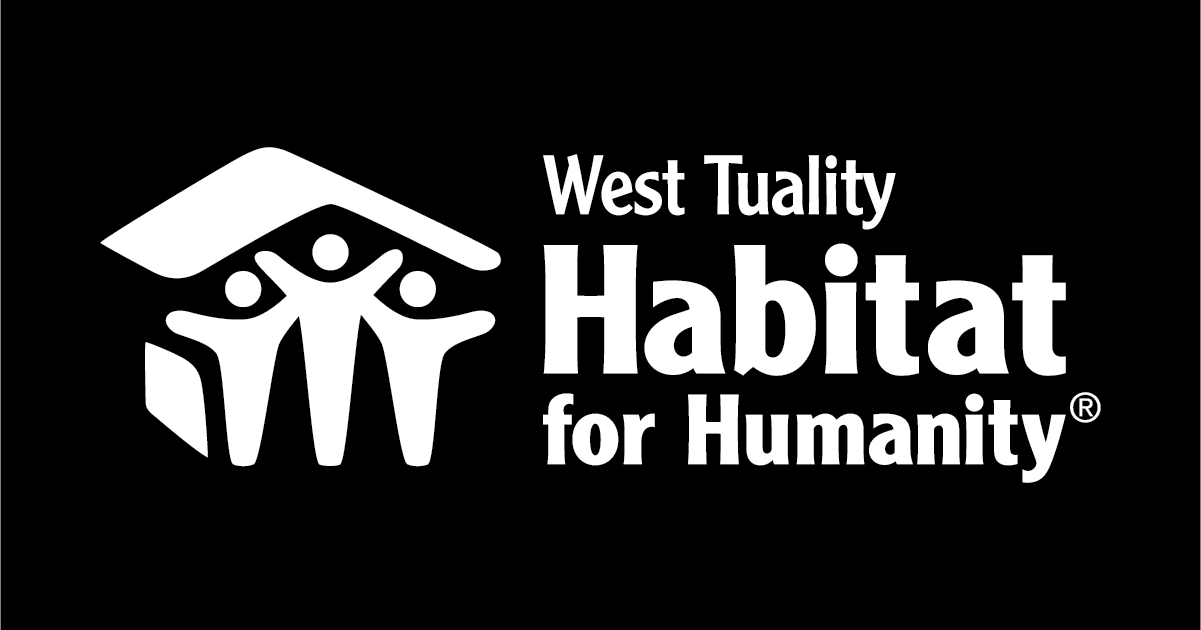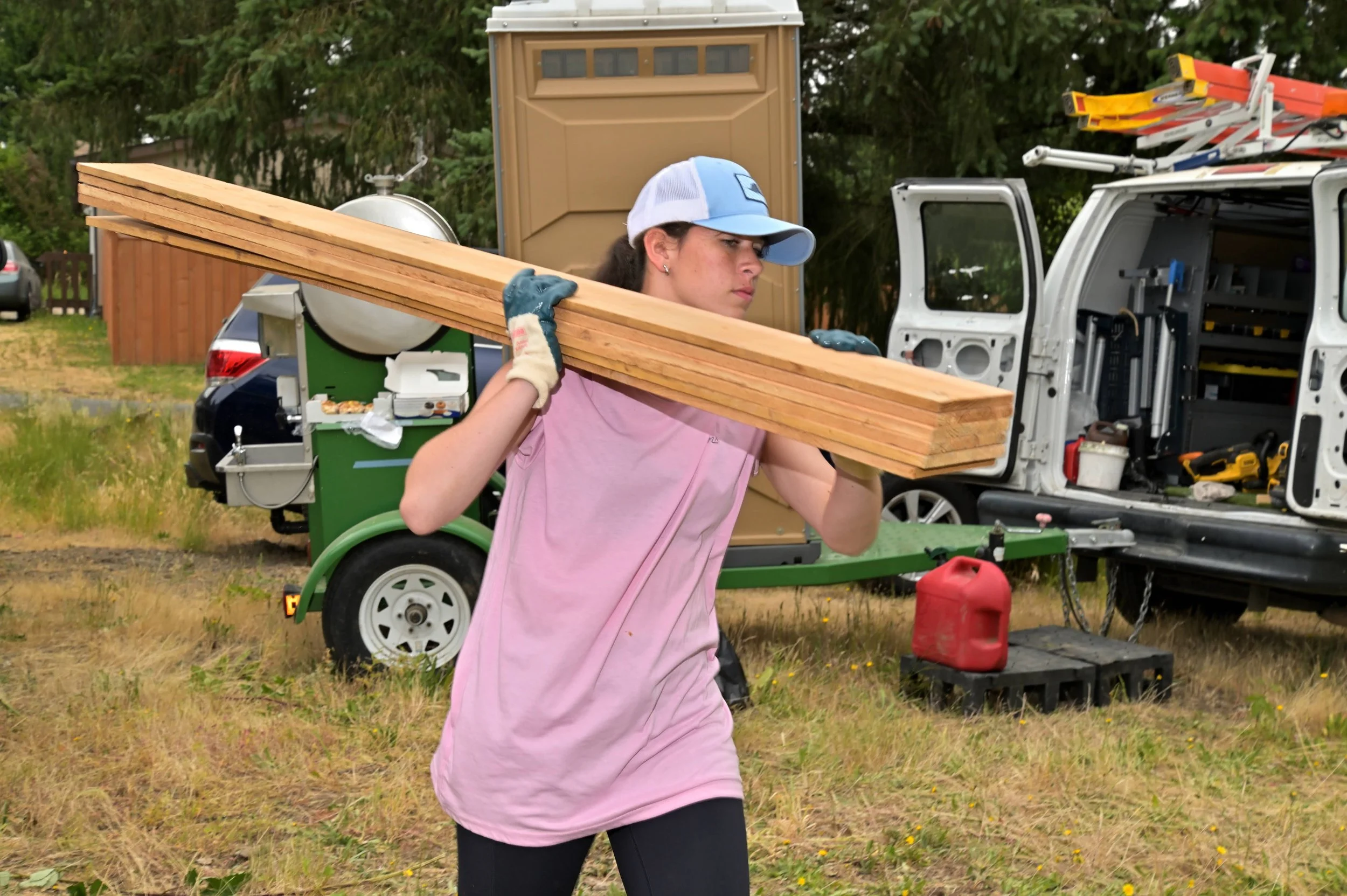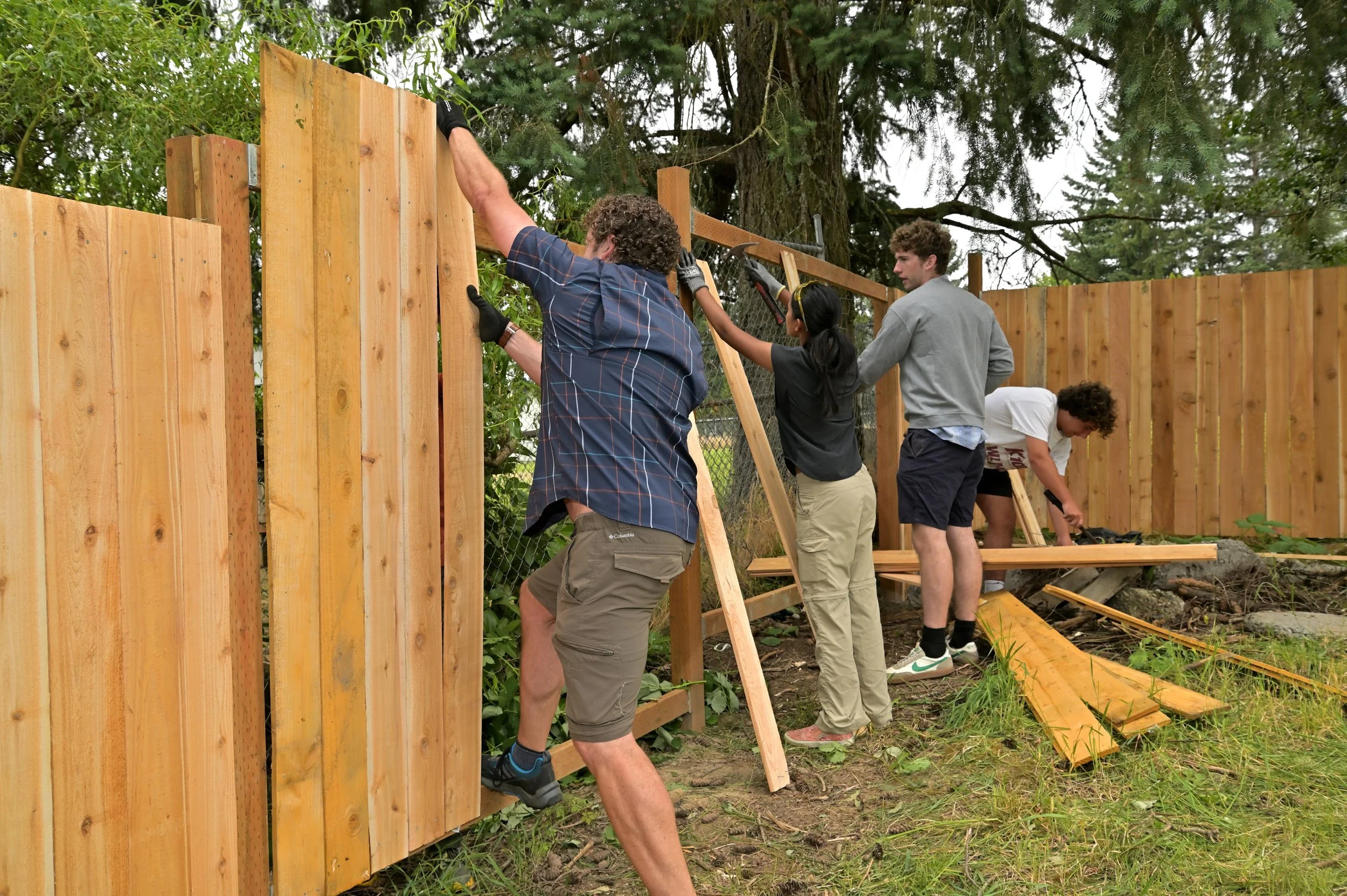Habitat’s Rapid Homestead Program Brings “Home” to a Family in Cornelius.
A family of five is moving into their new Habitat for Humanity home in Cornelius, Oregon this month, celebrated by West Tuality Habitat for Humanity staff and volunteers, their extended family and neighbors.
The Stephens' home is part of West Tuality Habitat’s Rapid Homesteads project to provide brand new, double-wide, energy efficient mobile homes on rural lots to participating households selected from West Tuality’s Homeownership Readiness program. The Stephens’ home has brand new water, septic and electric services, a fenced yard, deck, porch and shed, as well as a heat pump for heating and cooling.
Like all individuals and families accepted into the Habitat Homeownership Readiness program, the parents of the Stephens’ family performed sweat equity over several months, working at construction sites or in the Forest Grove ReStore, and also completed financial literacy training and homebuyer counseling, which helps to ensure long-time success as a new homeowner. A Habitat home owners' mortgage, including mortgage payment, taxes, insurance and homeowners association fees, if applicable, will not exceed 30% of that family's gross monthly income at the time of sale.
Below this article are photos of the journey of the property, from when volunteers started clearing the lot and building fencing, through the day of the home dedication.
"More than 50 volunteers participated in preparing this property for the Stephens' home, including students from Catlin Gabel School and Pacific University, our long-term core volunteers and members of at least three other Habitat partner families,” said Laura Altermatt, Interim Executive Director of West Tuality Habitat. “This home, like all of Habitat homes, is about more than housing - it’s also about bringing people together, as a community."
Studies have found that, when properly sited and maintained, manufactured homes appreciate in value, often at the same rate as other homes in surrounding neighborhoods, depending on their location. According to the U.S. Department of Housing and Urban Development (HUD), manufactured homes built today can last 30 – 55 years, due partly to the HUD-required standards, depending on the level of upkeep and maintenance devoted to the home.
Habitat for Humanity has long championed sustainable building practices, and manufactured housing aligns well with Habitat’s commitment to the environment. The process for creating manufactured homes enables efficient use of materials, reduces waste, generates fewer on-site disturbances and minimizes the ecological footprint associated with traditional construction. Additionally, manufactured homes are designed to be energy-efficient.
West Tuality Habitat is also completing the necessary infrastructure to begin construction on its next traditional stick-built home development, Countryman Estates, which is next door to Kidd Court, another traditional home development by the affiliate. Once finished, Countryman Estates will boast eight homes: two single-story fully-accessible units and six townhomes, each with three-four bedrooms and two full baths, including all appliances and fully-accessible ground floor living spaces and bedrooms. Countryman estates is named in honor of Bruce Countryman, who has been the Habitat affiliate’s volunteer construction manager for six of his 13 years volunteering with the organization. Kidd Corner is named in honor of former Forest Grove mayor and long-time Habitat supporter Richard Kidd. The local Habitat affiliate also completed a five-home development called Coopers Corner, at 19th Avenue and Oak Street near the former Tuality Forest Grove Hospital. That subdivision was named for one of the chapter's founding members, the late Glenn Cooper.
For over 30 years, West Tuality Habitat for Humanity in Forest Grove has worked with local families, volunteers, and partners in western Washington County to build homes with affordable mortgages and make critical repairs. Their work has proven critical to combatting the state’s affordable housing crisis by enabling more Oregonians to live in affordable and safe homes.
Habitat for Humanity works to reach underserved communities specifically regarding affordable housing, and recognizes that a structure of intentional and systemic racial discrimination in the USA has created barriers to homeownership for many families.
Habitat homes are built primarily by volunteers, alongside members of partner families who will be purchasing a home through Habitat as part of their “sweat equity” requirement (you can read more about sweat equity in English, o lee más sobre “sweat equity” en español). For West Tuality Habitat, there is a core group of volunteers with advanced construction skills who work at least three days a week on Habitat projects in Western Washington County. These core volunteers are regularly joined in the work by families that have qualified for home ownership through Habitat, as well as volunteers from the community, including employees volunteering through their work places, such as Intel, Lowe's, Wells Fargo, Heritage Bank, US Bank, Parr Lumber and more, as well as students from area colleges and universities. These additional volunteers often have no construction experience at all. Companies such as Lowe's and Malarkey Roofing in Portland provide building materials at discount prices and sometimes donate materials as well.
Homes built or rehabilitated by Habitat meet all local building code requirements. Particularly specialized work such as roofing, electrical, plumbing and HVAC is contracted out.
West Tuality Habitat for Humanity was formed in 1991, and is a local affiliate of Habitat for Humanity International. In addition to the affordable housing program, West Tuality Habitat also has provided critical home repairs for low-income, seniors, military veterans, and people with disabilities, allowing them to remain in their homes and age in place. West Tuality Habitat also operates the ReStore in Forest Grove, selling gently-used furniture, appliances, home furnishings and leftover building supplies. These sales help fund Habitat activities in the area.
For more information about donating financially, volunteering or applying to be a program participant, visit the West Tuality Habitat for Humanity web site at www.westtualityhabitat.org or call (503) 359-8459. There is also information available at the Forest Grove ReStore at 3731 Pacific Avenue.

















